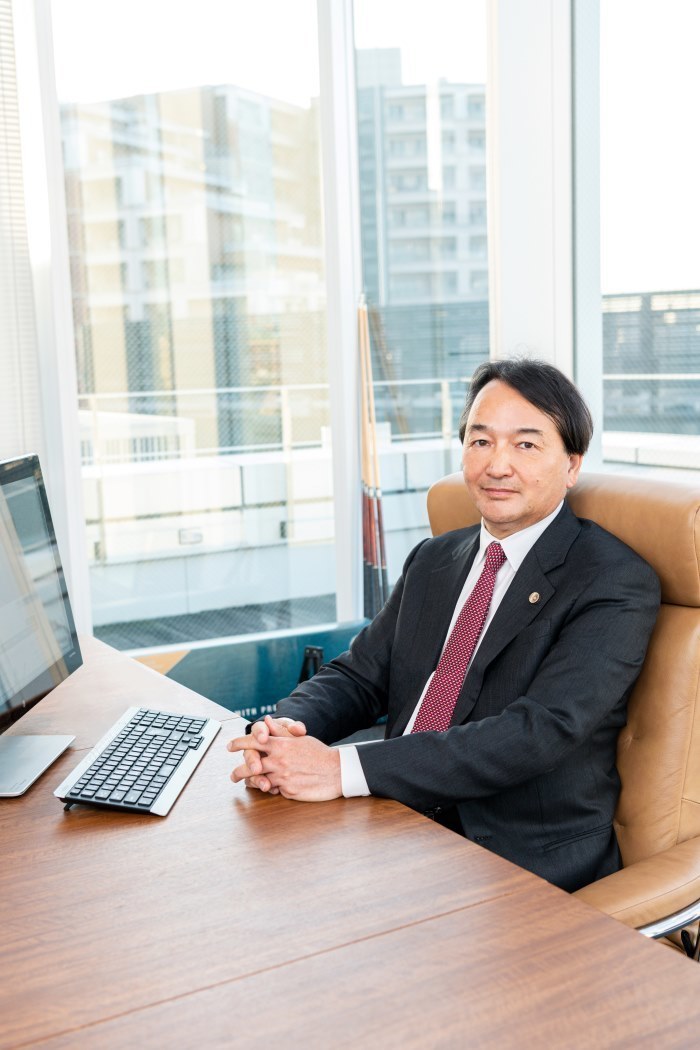Ebisu Plax Bldg. 6F 1-25-1 Ebisu-Minami,
Shibuya-ku Tokyo JAPAN 150-0022
Office hour | Weekday 9:30~17:00 |
|---|

1. Our team consists of a partner who is well versed in criminal procedures and has experience as a criminal defense lawyer for foreigners (about 30 years), an attorney who has 15 years of experience as a prosecutor, and an associate attorney who is fluent in English, who provide prompt and careful legal services.
To date, we have handled many criminal cases involving foreign nationals and international criminal cases that crosses borders, and have obtained non prosecution result, not guilty, and significant reductions in sentences.
We also handle lay judge trials, which began in May 2009.
While lay judge tiral require new pleading techniques that are different from those used in conventional criminal trials, we are able to provide high quality services based on our extensive knowledge of the case.
2. Our firm handles criminal cases involving foreign nationals in English.
Legal assistances who can speak English can respond to the inquiry from the family who are anxious because they cannot visit, due to living abroad. The attorneys will explain the current situation and the outlook of the case in English when required.
When the families of the foreign nationals visit the police station/detention facility, they need to prepare translator because the police officer will attend the meeting. We can introduce an interpreter at a reduced cost, or attorneys of our law office can interpret for the foreign relative.
In addition, criminal cases involving foreign nationals are closely related to immigration procedural issues such as deportation and denial of entry in the future. We provide advice on complete solution on the problems including such immigration procedures.
3. Our team offers necessary and appropriate support at each stage of the procedure.
① Arrest stage
When arrested by the police, the case will be sent to the prosecutor within 48 hours.
During this time, the arrested person is not allowed to see his/her family and his/her friends, but attorneys can see him/her right away.
When we receive a call from the arrested person or his/her family, we generally visit the police station on the same day to meet the arrested person, hear his/her circumstances, and give him/her advice on the expected flow of procedures and how to respond during interrogation.
Interpreter is generally not required as long as it is in English, because the English-speaking attorneys are available to assist foreign nationals, allowing them to explain their situation and receive accurate legal advice. Therefore, the subsequent procedures and settlements can be handled promptly.
In addition, in relatively minor cases, we make a request to the prosecutor or judge to prevent detention after the arrest.
In cases where we received early requests for our services, and was able to start promptly on our defense activity, we have been able to avoid arrest and subsequent detention, and have obtained early release in many cases.
② Pre-indictment detention
If the arrest is followed by detention, an arrested person will first be held in custody for 10 days, and this period may be extended up to 10 more days. During this period, access to people other than the attorneys may also be restricted.
During the detention stage, a full-scale investigation, including interrogation is conducted, and it is decided whether or not the prosecutor will indict the case.
During this period, we will meet with detainee repeatedly and give him/her our honest opinion from a legal perspective based on the criminal practice, including the expected general sentence, so that he/she can make the best choice for themselves.
Especially, in the case of foreigners, there are cases where the detainee would unnecessarily deny everything due to differences in legal system etc.. In such cases, we can carefully explain the Japanese criminal proceedings and the future outlook in the case of denial, and can advise appropriate measures for the trial stage.
Also, we endeavor to obtain a partial lift of the incommunicado order from the court for the family, even when there is an incommunicado order, which bans anyone from meeting the detainee.
In cases where the suspect is innocent or where the criminal punishment is inappropriate due to various circumstances, we actively engage in defense activities, such as submitting opinion letter to the prosecutor requesting non-prosecution or submit evidence from the defense side.
As part of such defense efforts, we have handled a number of cases resulting in non-indictment, including the cases where we obtained non-prosecution by submitting eyewitness testimony denying involvement in the assault to the prosecutor, and the case in which we obtained non-prosecution by settling with the victim.
Settlements, especially during the stage of pre-indictment detention, are sometimes an important factor in determining whether a case is prosecuted or not. We always strive to respond appropriately to each case with consideration for the victims’ feelings. We also work hard to gain the understanding of the victims by offering appropriate settlement amounts according to the case. We have accumulated considerable experience in successful settlements.
In the case involving foreign nationals, a non-prosecution is particularly important, as even if the sentence is suspended, it may become the reason of deportation or denial of landing, if a request for trial is made.
③ Trial Stage
Once an indictment is filed by the public prosecutor, the case proceeds to a trial, after that the judgement is made.
Except for some minor cases, the trial usually takes a minimum of one to one and a half months, and sometimes several years in complex cases, etc. During this time, the defendant is generally kept in custody unless bail is granted. In addition, restrictions on visits to non-attorney personnel may continue.
We aggressively request bail so that the defendant can be released from custody as soon as possible after indictment. Even in cases where it is difficult to obtain bail, such as cases involving foreign nationals, we make every effort to achieve it to the greatest extent as possible (there are problems unique to foreign nationals, such as not having a residence in Japan or a Japanese person to act as a guarantor, but we have methods to deal with these problems), and even when bail is not granted, we will maintain close communication with the defendant as we do with those who have been released through repeated meeting and provide support such as trial preparation and overall coordination.
During this period, it is especially important for the defense to make a strong case for the final verdict.
In the case of those who admit guilt, we will make every effort to obtain a suspended sentence, or even if a suspended sentence is difficult to obtain, to reduce the sentence as much as possible, by negotiating settlements with the victims in good faith, preparing for the attendance of family members and others in court to prepare their living environment after the sentence, and other so-called activities to prove extenuating circumstances.
For those who insist on their innocence, we will not only carefully analyze the prosecution's evidence based on our experience in obtaining not guilty sentence, but we will also seek opinions from experts and collect evidence from overseas, depending on the case, and will make every effort to prove their innocence.
④Handling Immigration Control Act Issues
In the case of foreign nationals deportation may occur after the sentence is set. Also, the situation of the visa status could also affect the bail decision, making the issue of visa status an inseparable part of the case.
Our firm is able to provide accurate advice on the outlook for future visa status issues and how to deal with them at the criminal procedure stage, and we try to alleviate the various concerns of foreign nationals.
⑤ International criminal cases that cross borders
Recently, there has been an increase in the number of consultations and defense of international criminal cases that cross national borders, such as cases where the suspect is in a foreign country and criminal proceedings will be conducted in Japan once the suspect enters Japan, where the victim is in Japan and settlement is required, or where the evidence is located is in a foreign country. We have a lot of experience in such international criminal cases and are able to handle them appropriately.
4. Our main achivements
①Arrest Stage
•In a criminal case involving a foreign tourist visiting Japan as a suspect, we handled the case from the arrest stage. The request for detention from the prosecutor was dismissed by the court, and the suspect was released two days after his arrest. In the case of foreign tourists, since they do not have a residence in Japan, one of the requirements for detention, indeterminate residence (Article 60, Paragraph 1, Item 1 of the Code of Criminal Procedure), is generally accepted.
②Pre-indictment detention stage
•In a case involving a foreign tourist visiting Japan suspected of violating the Narcotics and Psychotropics Control Law (drug importation), we argued that there was no intent to import drugs and obtained a non-prosecution. As mentioned above, when a foreign national is convicted of violating the Narcotics and Psychotropics Control Law, it falls under the grounds for deportation under the Immigration Control and Refugee Recognition Act (Article 24, Item 4(h) of the same law) and the grounds for denial of landing (Article 5, Item 5 of the same law), so it is important to obtain a non-prosecution whenever possible in the case of a foreign national.
•We obtained non-indictment against a foreign national for alleged violation of the Methamphetamine Control Law (importation for profit) due to insufficient suspicion. Importation of methamphetamine for profit is considered a serious crime and is subject to a lay judge trial.
③Trial Stage
•In a case involving a violation of the Methamphetamine Control Law and the Customs Law, the defendant got not guilty sentence (the prosecutor demanded for 13-year sentence) on the grounds that the defendant did not have awareness of facts that would have established the probability that a controlled substance was concealed in the baggage and that there was no finding of willful intent.
•In a case involving a foreign national accused of violating the Narcotics and Psychotropics Control Law, the defendant's claim that he only possessed narcotics because he mistakenly believed they were designated drugs was accepted, and the Tokyo District Court issued a ruling denying his intent to commit the crime of possession of narcotics. In addition, if a foreign national is convicted of violating the Narcotics and Psychotropics Control Law, he or she falls under the grounds for deportation under the Immigration Control and Refugee Recognition Act (Article 24, Item 4 (h) of the said Act) and the grounds for refusal of landing (Article 5, Item 5 of the said Act).
•We became a defense lawyer from the appellate stage in the case where the foreign national were convicted of the violation of Narcotics and Psychotropic Substances Control Law and the Customs Law. We obtained suspended sentence in the high court which overruled the district court’s imprisonment sentence.
•Bail was granted in the case of a foreign tourist visiting to Japan accused of violating the Narcotics and Psychotropic Substances Control Law. Since foreign tourists generally have no residence in Japan and are considered to be at risk of fleeing, the parents, who are the guarantors, obtained visa status and secured a residence in Japan.
④Handling Immigration Control Act Issues
•Where there are cases where a foreigner's visa status expires during the pendency of a criminal trial, the visa status also affects the decision to grant bail. In a case in which a foreign tourist was the defendant, we applied for and was granted a short-term extension of stay on the grounds that the criminal trial was pending so that the visa status would not expire while on bail.
⑤International criminal cases that cross borders
•We traveled to Israel to collect testimony in the case of an Israeli rabbinical student accused of violating the Methamphetamine Control Law and the Narcotics and Psychotropics Control Law, and as a result, we reduced his sentence to less than half of the requested sentence.
Free inquiry for simple questions (appox.10minutes) for First time clients.
| Contact by Telephone call TEL :+81-(0)3-6455-1273 Office hour: Weekday 9:30〜17:00 |
Inquiry and Booking consultation

| Office hour | Weekday 9:30~17:00 |
|---|
Please contact us by the following form, E-mail,
or telephone call.
The Masayuki Honda International Law Office, LPC is located in Ebisu, Shibuya.
We are specialized in International cases for individual clients and Small-Medium sized Companies.
Our English speaking lawyers provide the legal services with reasonable fees.
We are available for English reception, so please feel free to contact us.
| Main Districts for Service | For Greater Tokyo, Shibuya, Ebisu, area. Also covers Saitama, Kanagawa, Chiba, and Kanto Suburbs areas. We are available for Overseas Clients consultation through Telephone call and Skype. |
|---|
Areas of Practice
Contact us

Available for English
Office hour:Weekday 9:30~17:00
Masayuki Honda International Law Office,LPC
Address
Ebisu Plax Bldg. 6F
1-25-1 Ebisu-Minami, Shibuya-ku
Tokyo JAPAN 150-0022
Office hour
Weekday 9:30~17:00

